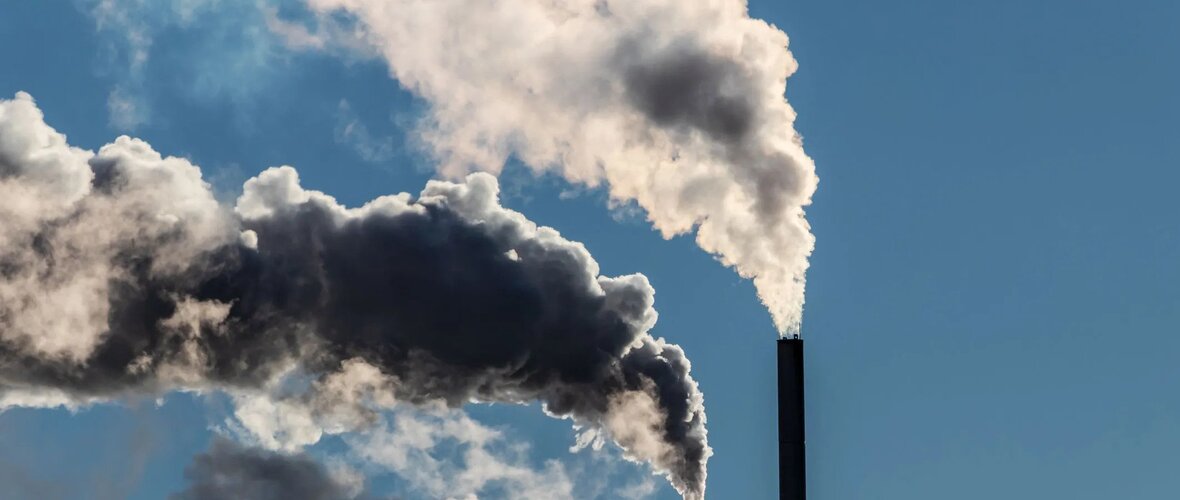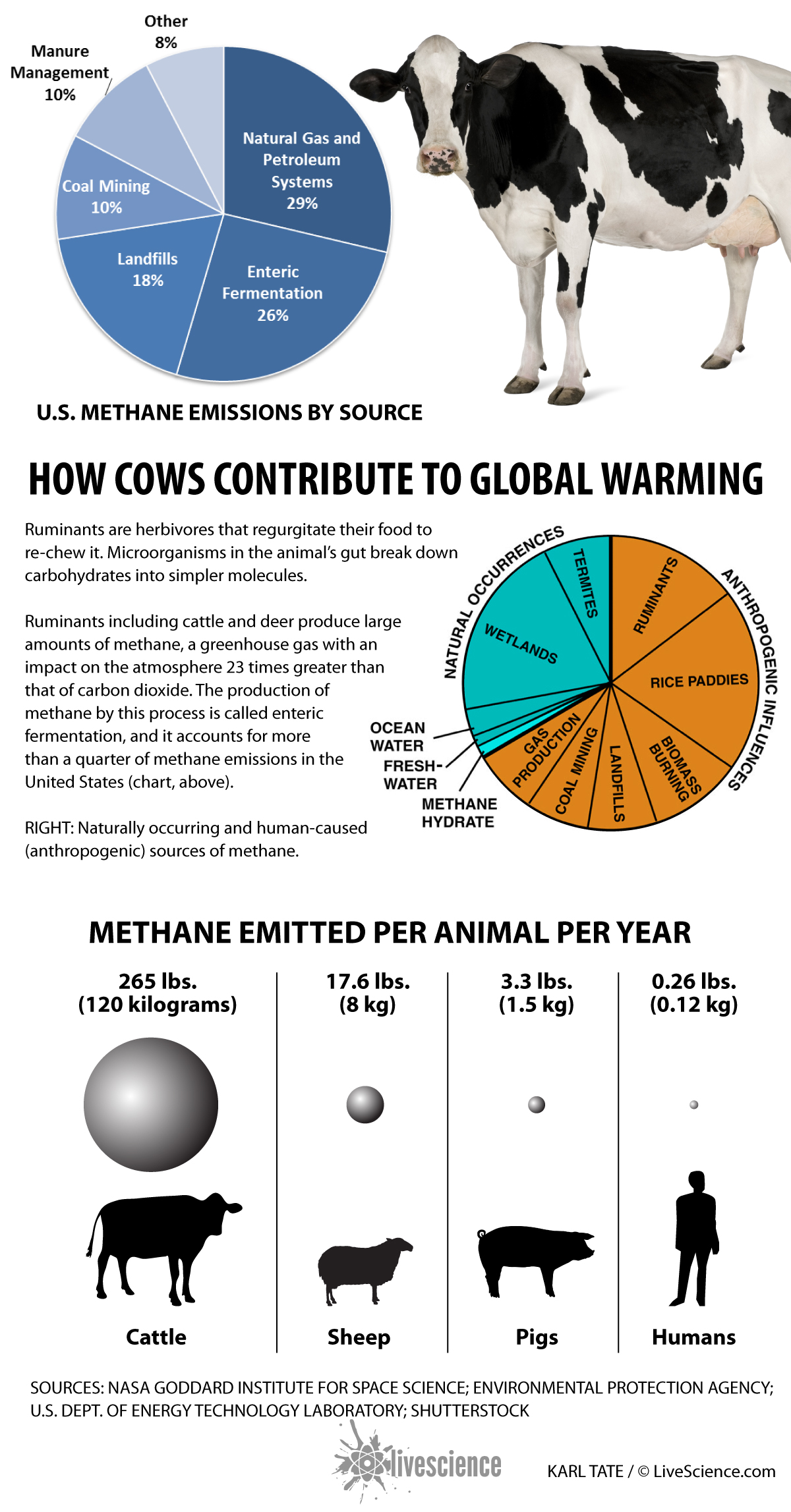Methane - A Deal Breaker
March 14, 2022 | Expert Insights

In the conversations surrounding climate change, carbon has dominated the discussion at the cost of other pollutants. However, the focus is now slowly shifting towards methane - the second biggest greenhouse gas contributing to global warming.
Background
The Paris Climate Control deal aims at an almost unreachable target of limiting global warming to 1.5 degrees through a significant reduction in greenhouse gas emissions. To realise this ambitious goal, apart from curbing carbon emissions, targeting methane is the only way forward.
Methane causes up to 20 per cent of the global greenhouse gas emissions, creating ground-level ozone that traps heat. Carbon dioxide remains in the atmosphere for centuries; therefore, even if we begin to reduce our emissions by more than half now, it will take at least another century to tackle the climate crisis. Methane, on the other hand, would only take a decade to break down.

Analysis
The two main sources of methane emissions are agriculture, particularly livestock, and the oil and gas industry. As per the Indian Express (5 July 2021), India generates approximately 9 to 14 million mt of methane annually, out of the total global emission of 90 million mt from livestock. To curb livestock emissions caused due to the digestive processes (known as enteric fermentation) of cattle, it is essential to improve the grass and feed of the livestock. Researchers are also suggesting that the body fat of the cattle should be managed better.
Scientists are studying alternative diets for cattle that help to reduce methane emissions without harming the livestock. The Indian Council of Agricultural Research (ICAR) institute is working on a supplement appropriately named 'Harit Dhara', which will reduce methane in bovines and sheep by nearly 20 per cent. Even better, it is being claimed that the supplement will improve milk quality and production and add to bodyweight for the meat markets.
Other than meat production, rice - a staple diet across countries, is also a large contributor to methane emissions. Newer agricultural practices which not only save water but also reduce emissions by nearly half are being implemented in countries like Vietnam, which is the second-largest exporter of rice. These practices are ecologically friendly and result in increased crop yields.
In 2020, the methane emissions from oil and gas industries were 70 million tonnes, according to the International Energy Agency. Emissions of this magnitude are simply unacceptable, given methane's affinity to form ground-level ozone. The oil and gas industries can reduce their methane emissions by employing simple and existing technology which can better detect gas leaks.
Concerned governments are addressing industrial emissions and have made some progress in looking for alternate sources of energy to achieve climate control targets that most of them have pledged. However, touching the Agri sector is a difficult proposition in most countries, both developed and developing. As a major employer of manpower, the farm lobbies wield political influence way beyond their size and weight that few governments dare to challenge. With 27 per cent of the global workforce engaged in agriculture, it is difficult to address this issue head-on.
In 2020, health professionals in the U.K. suggested that taxing meat would be important to fighting climate change, raising a storm of angry protests. While governments are not going to adopt such extreme steps anytime soon, it is necessary to adopt measures to reduce methane emissions at the earliest. In the EU alone, there was a 9.5 per cent increase in dairy and meat production from 2007 to 2018. This means that greenhouse emissions increased 6 per cent annually. Given that methane is nearly 80 times more powerful than carbon dioxide in trapping heat, these statistics will make it impossible to meet the Paris Agreement goals.
Methane emissions will reduce warming as soon as livestock emissions drop to a significant level. Carbon dioxide, on the other hand, will continue to contribute to the rise in temperature until the emissions are removed from the atmosphere completely. This indicates that even negative growth in methane emissions is much more impactful in curbing global warming than carbon dioxide in the short term.
COP26 discussions finally addressed the methane issue, and several European Union countries and the United States of America signed the Global Methane Pledge to reduce emission by 30 per cent. The Intergovernmental Panel on Climate Change (IPCC) has called this inadequate as to maintain the 1.5-degree temperature; countries must reduce emissions by at least 40-45 per cent. However, few countries are politically or technologically empowered to achieve these targets. Most nations, despite being signatories to the Global Methane Pledge, do not have adequate methane regulations in place. Large contributors like India, Russia and China are not even signatories to the pledge. Therefore, even an attempt to reduce 30 per cent of emissions seems like an ambitious feat, given the lack of global cooperation.
Unlike carbon dioxide emissions, methane emissions are more difficult to detect. Under these circumstances, a lack of consensus within the international community to reduce emissions is dangerous, as it robs us of the much-needed time to reduce carbon emissions in the long run.
While India has pledged to bring down carbon emissions to net-zero by 2050, given methane's strong agricultural connection, the country has abstained from signing the pledge. 60 per cent of India's economy depends on agriculture. Therefore, the government has felt that it cannot proceed to reduce methane emissions without a concrete alternative that will not disturb the agri sector.
Assessment
- The constant tussle between ecological cost and economic cost has, on several occasions, resulted in countries choosing to safeguard their economic interests. Given the precarious situation the planet is heading towards, it is important to note that favouring economic and monetary profits is no longer a plausible option the world can afford.
- Given carbon dioxide’s long-lasting effect on the climate crisis, the world must now shift the lens towards tackling methane emissions to buy extra time to keep global temperatures from rising in the short term. Since the agriculture sector is going to be largely impacted, steps must be taken to find technological solutions to better manage livestock and encourage the adoption of alternate diets, so that the booming demand for meat products is somehow tempered.








Comments